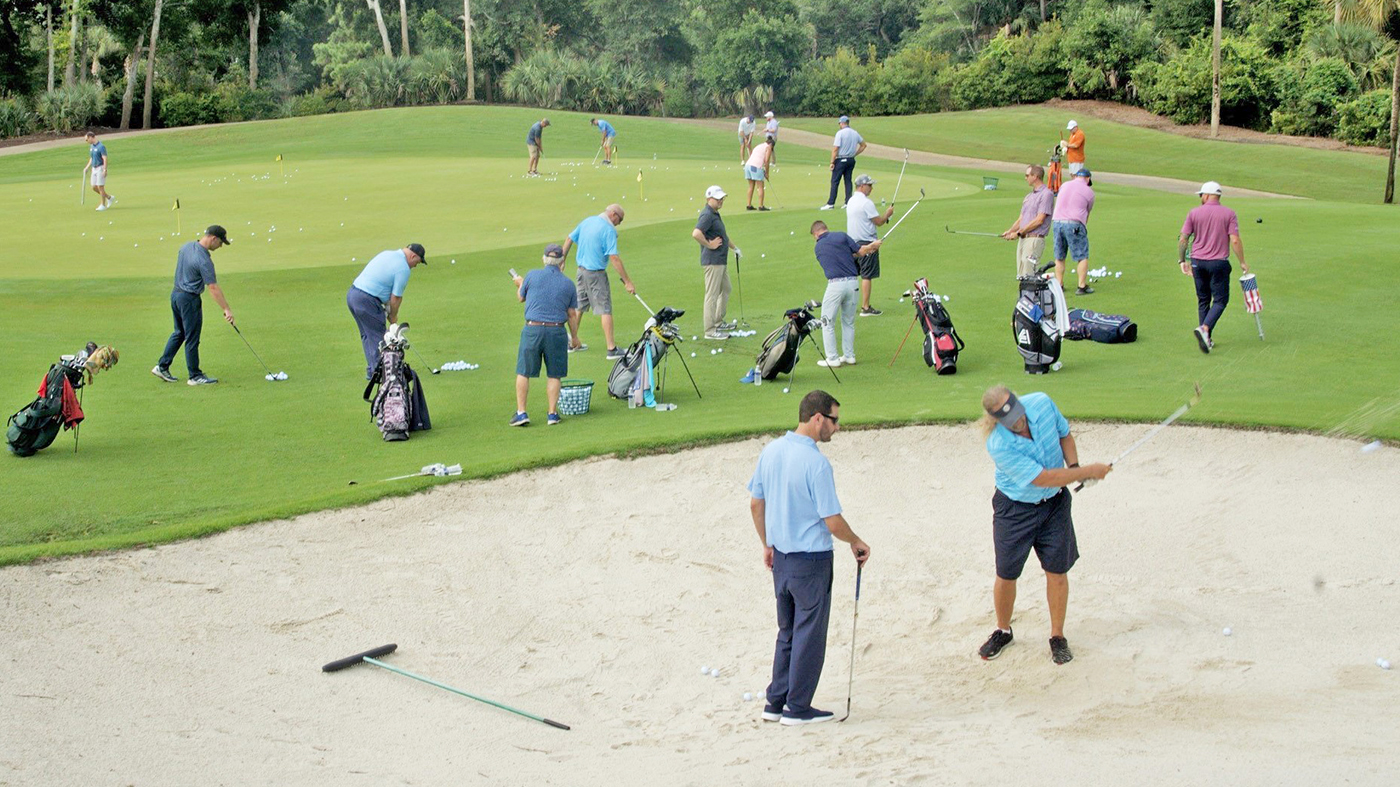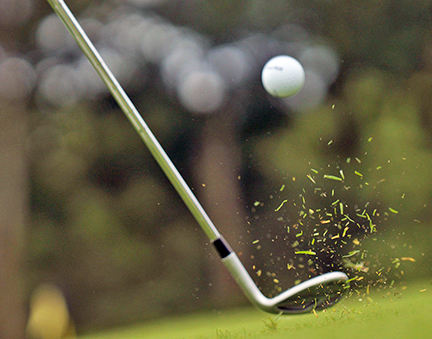On a sunny morning at Cougar Point Golf Course at Kiawah Island Golf Resort, a group of Veterans line up on the driving range, golf clubs in hand. Some are beginners, others more experienced, but all share a common purpose: finding healing and connection through the game of golf.
Many of these Veterans have been referred to this program by the Ralph H. Johnson VA in Charleston, which recognizes the therapeutic benefits of golf for its patients.
This is PGA HOPE (Helping Our Patriots Everywhere), a program that’s changing lives one swing at a time and has found a strong partner in Ralph H. Johnson VA.
PGA HOPE, the flagship military program of PGA REACH, the charitable foundation of the PGA of America, introduces golf to Veterans and active-duty military personnel as a form of therapy. The program aims to enhance participants’ physical, mental, social and emotional well-being through a six- to eight-week curriculum led by PGA professionals trained in adaptive golf and military cultural competency.
For many Veterans, the program offers more than just golf instruction, it provides a lifeline to community and purpose.
“I am most at peace out on the golf course.”
“PGA HOPE has had a huge impact on my life,” said Harold Hill, PGA HOPE Carolinas ambassador and Coast Guard Veteran. “It truly has been a life-changing experience for me. I swing a golf club at some point each day, which helps me to relax and not get stressed out about things going on in the world. I am most at peace when out on the golf course with other Veterans.”
The Carolinas Section, covering North and South Carolina, boasts 26 chapters, some with multiple clinic sites. In September, the Charleston chapter will celebrate conducting its 100th clinic, having graduated over 2,000 Veterans since 2015.
Josh Wagaman, PGA head golf professional at Cougar Point and president of the Carolinas PGA, has been teaching the PGA HOPE program at Kiawah since 2017. “We run it twice a year in the summer and winter. We have between 28 and 32 Veterans and between four and five peer mentors who are Veterans who have been through the program and some additional training,” Wagaman said. “They develop relationships with the golf professionals who help teach fellow Veterans. A lot of the Veterans come and don’t know anybody in the program. By the time they finish the program, they’re involved in playing groups. They’re also involved in groups that hang out outside of golf.”
Reggie Williams, Navy Veteran and PGA HOPE participant: “I haven’t had an opportunity to hang out with fellow brothers and sisters in the Armed Forces in a while, in a couple of years. So just being around other Veterans has been really cool.”
PGA HOPE’s partnership with VA further enhances its reach and impact. A memorandum of understanding enables VA doctors and staff to refer Veterans to the program as a form of therapy.
The therapeutic benefits of golf for Veterans are multifaceted. The sport provides physical activity, mental focus and social interaction, all of which can be beneficial for those dealing with physical injuries, PTSD or other service-related challenges.
“This is my way to give back.”
“All the PGA instructors are adaptive-golf trained so they have effective methods of working with some who may have mobility issues, as well as PTSD,” Hill explained. “Some locations have para-mobiles that allow those who are wheelchair bound to sit, strap in and use toggle switches to move around the course and raise themselves into a suitable position for a golf swing.”
David Stam, Air Force Veteran and PGA HOPE peer mentor, shared his experience: “I played golf for 60 years without any lessons, and my game reflected that. In 2021, a neighbor told me about PGA HOPE. It’s a seven-week program for Veterans, offering two hours of individual instruction from pros once a week.”
Stam now volunteers as a peer mentor, helping new participants navigate the program. “We don’t teach, but we do help the pros administer the program each week,” he said.
For the PGA professionals involved, teaching in the PGA HOPE program is a rewarding experience. “I didn’t serve my country,” Wagaman said. “I’ve got the freedoms I have because of folks like you and folks like the Veterans here today that did serve the country. This is my way to give back to those who have sacrificed for us so we can do what we’d like to do and live in a free country that we live in.”
Veterans can find the closest PGA HOPE program to them at PGA HOPE Carolinas.
For Veterans considering joining PGA HOPE but unsure about taking the first step, Hill offerer encouragement: “Take the leap of faith and join other Veterans who have discovered camaraderie with other Veterans through the game of golf at no expense.”
Topics in this story
Link Disclaimer
This page includes links to other websites outside our control and jurisdiction. VA is not responsible for the privacy practices or the content of non-VA Web sites. We encourage you to review the privacy policy or terms and conditions of those sites to fully understand what information is collected and how it is used.
More Stories
Veteran Byron Potier weighed almost 300 pounds and was tired and lethargic. He was the perfect candidate for gastric sleeve surgery.
How much do you know about VA care, benefits and services? Don’t miss out on what you've earned—check out the "2025 VA Federal Benefits Guide for Veterans, Dependents, Survivors, and Caregivers" handbook to learn more.
Feeling stressed? Your breath can help you relax and focus. Take 3 minutes to reset and prioritize your well being for this week's #LiveWholeHealth practice.







